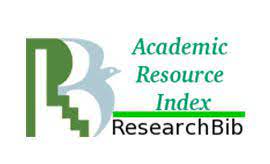THE DIFFICULT FATE OF IMMIGRANTS FROM UKRAINE AS THE PLOT CANVAS OF THE NOVEL BY I. ROZDOBUDKO “I KNOW THAT YOU KNOW THAT I KNOW”
DOI:
https://doi.org/10.51707/2618-0529-2024-29-06Keywords:
Irene Rozdobudko, middle literature, novel in short stories, immigrants, metaphor.Abstract
The article is devoted to the literary analysis of I. Rozdobudko’s novel “I know that you know that I know”. As a result of the work carried out, it was noticed that the work is poorly researched in the literature, so far no systematic scientific and methodological study has been found. It was found that the novel by Irene Rozdobudko presents modern prose, which is located at the crossroads of elitist and egalitarian literature. Philologists call such creativity “middle literature”, which is designed to respond to current questions and challenges of our time and at the same time stimulate the reader to serious thinking. The genre and style features of the work are defined in the work. By all artistic parameters, the novel belongs to avant-garde mass literature, written in the style of existentialism. The elements of content organization of the work, such as theme, idea, genre, issues, are clarified in the novel; the peculiarities of the depiction of the plot canvas of the text through the artistic techniques of retrospection, inner speech, “revelation” were revealed. The article outlines the ideological and moral principles of the heroes who are trying to adapt in a foreign language environment, their desire for inner freedom, which leads to disharmony, dramatic emotional and psychological states. It has been studied that the depiction of the emotional feelings of the characters is carried out through the use of metaphors. It has been determined that I. Rozdobudko’s individual language creation is based on metaphor. This technique has an impact on the creation of both landscape images and character images. Metaphorization of nature takes place through the use, for example, of such symbolic images as the sky, fire, sun, rain. The metaphorization of character images contributes to a more accurate, expressive depiction of the behavioral model of the heroes. There are both metaphorical language turns, clichés that are well-known, actively used by speakers, and metaphorical neologisms can be found in the text of the novel. Metaphorized parameters of living and inanimate objects, metaphorized proper names are revealed in the novel. Metaphor as a tropeistic tool enriches the content of the novel, makes it impressive, understandable, and emotionally rich.
References
Herasymenko, N. (2005). Osoblyvosti tvorchoi manery Iren Rozdobudko [Peculiarities of Irene Rozdobudko’s creative style]. Slovo i chas – Word and time, 11, 36–39 [in Ukrainian].
Kropyvko, I. V. (2012). Khudozhno-arkhitektonichni osoblyvosti povisti I. Rozdobudko “Vse, shcho ya khotila sohodni…” [Artistic and architectural features of I. Rozdobudko’s story “Everything I wanted today...”]. Visnyk LNU imeni Tarasa Shevchenka — Bulletin of Luhansk Taras Shevchenko National University, 3 (238), 2, 62–171 [in Ukrainian].
Sokolovska, Yu. S. (2017). Tvorchist Iren Rozdobudko v konteksti ukrainskoi masovoi literatury [Creativity of Irene Rozdobudko in the context of Ukrainian mass literature]. Candidate’s thesis. Ivano-Frankivsk [in Ukrainian].
Sokolovska, Yu. S. (2015). Osoblyvosti hostrosiuzhetnoi prozy Iren Rozdobudko [Peculiarities of dramatic prose by Irene Rozdobudko]. Naukovi zapysky Berdianskoho derzhavnoho pedahohichnoho universytetu. Serііa: Filolohichni nauky — Scientific notes of Berdyansk State Pedagogical University. Series: Philological sciences, 8, 214–221 [in Ukrainian].
Sokolovska, Yu. S. (2014). Funktsionuvannia metaforychnykh konstruktsii u prozi Iren Rozdobudko [Functioning of metaphorical constructions in Irene Rozdobudko’s prose] Filolohichni traktaty — Philological treatises, 6, 3, 95–99 [in Ukrainian].
Holoborodko, Ya. (2010). Ukrainska fashion-literatura. Teksty i tsinnosti Iren Rozdobudko [Ukrainian fashion literature. Texts and values of Irene Rozdobudko]. Slovo i chas — Word and time, 12, 36–39 [in Ukrainian].
Holoborodko, Ya. (2011). Khudozhnie IQ Iren Rozdobudko [Artistic IQ of Irene Rozdobudko]. Ukrainska literatura v zahalnoosvitnii shkoli — Ukrainian literature in secondary schools, 6, 5–8 [in Ukrainian].
Romanenko, O. V. (2014). Semiosfera ukrainskoi masovoi literatury. Tekst. Chytach. Epokha [Semiosphere of Ukrainian mass literature. Text. Reader. Epoch]. Kyiv : Yakubets A. V. [in Ukrainian].
Kuiava, Zh. Kozhnomu — po zasluzi v romani Iren Rozdobudko “Ya znaiu, shcho ty znaiesh, shcho ya znaiu” [Everyone — according to their merits in Irene Rozdobudko’s novel “I know that you know that I know»]. Retrieved from https://artvertep.com/print?cont=17110 [in Ukrainian].
Halushka, N. V. (2013). Melodrama “Ziviali kvity vykydaiut” Iren Rozdobudko v konteksti masovoi literatury [The melodrama “Withered flowers are thrown away” by Irene Rozdobudko in the context of mass literature]. Visnyk Cherkaskoho universytetu. Seriia: Filolohichni nauky — Bulletin of Cherkasy University. Series: Philological sciences, 5, 117–122 [in Ukrainian].
Kryshtopa, M. (2005). Iren Rozdobudko: “Shchastia — tse vse te, shcho ye u tobi” [Irene Rozdobudko: “Happiness is all that you have”]. Slovo Prosvity — The Word of Enlightenment, 3, 15 [in Ukrainian].
Rozdobudko, I. (2011). Ya znaiu, shcho ty znaiesh, shcho ya znaiu [I know that you know that I know]. Kyiv : Nora-Druk [in Ukrainian].
Downloads
Published
How to Cite
Issue
Section
License
Copyright (c) 2024 Scientific notes of Junior Academy of Sciences of Ukraine

This work is licensed under a Creative Commons Attribution 4.0 International License.













